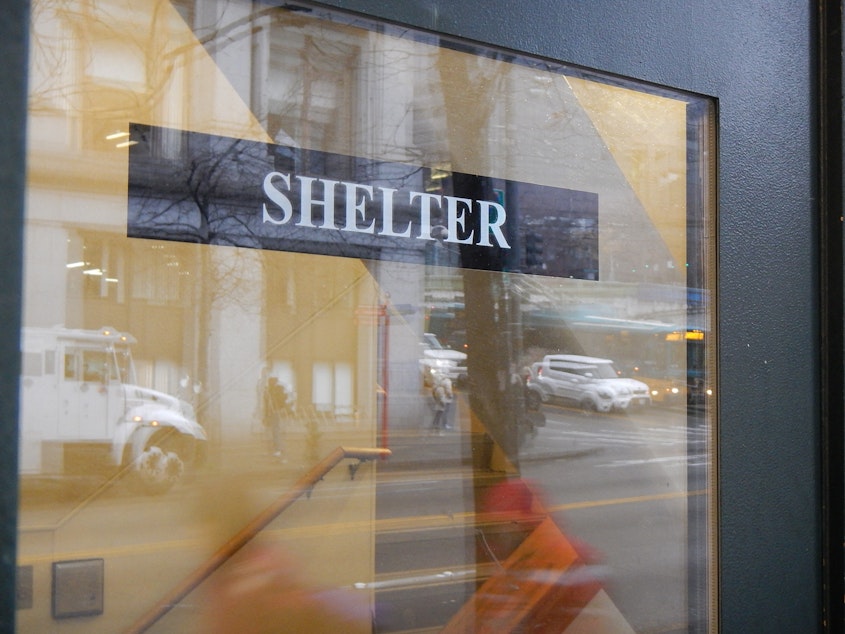Crowding, lack of social distancing enforcement may have contributed to Covid-19 outbreaks at Seattle shelters

Interrupting the transmission of Covid-19 in homeless shelters is a challenge. Like long-term care sites, shelters are densely populated, which can amplify infectious disease outbreaks.
A new report from the Centers for Disease Control looks at an outbreak in three affiliated Seattle shelters in early April, and the public health response that followed.
Public Health — Seattle and King County was notified of a positive Covid-19 case in a shelter and day center on March 30. Residents from two other shelters had used services at the day center, according to the report.
Testing and symptom screening was carried out at the three sites between March 30 and April 11. In total, 35 residents and eight staff were identified as positive for Covid-19.
The report notes five conditions that may have contributed to transmission of the virus:
• The mobile nature of the homeless community and the use of multiple service sites
• Crowding and use of congregate sleeping arrangements
Sponsored
• Challenges enforcing social distancing
• Possible asymptomatic transmission
• Lack of access to face masks for residents
Sponsored
However, after Public Health was notified about the first positive case, the report notes that the response was fast.
A rapid response team was deployed to assess the situation and help make recommendations to decrease the risk of spread. Site assessments identified multiple areas for improvement within the shelters, the report says.
“Staff members rotated among the three shelters. Residents were able to leave the shelters if they returned by curfew. Sleeping mats in each of the shelters were spaced [less than, or equal to] 3 feet apart.”
One shelter didn’t have alcohol-based hand sanitizer or on-site showers, the report states, noting that residents used shuttles or public transit to access showers. Residents also weren’t provided with face masks.
Sponsored
Recommendations were put in place to ensure residents were sleeping at least six feet apart, portable showers were arranged for the shelter without showers on-site, staff members were trained on cleaning, and disposable face masks were provided.
Additionally, people who were symptomatic or tested positive for Covid-19 were quickly moved to isolation, and testing was conducted for all available residents and staff, regardless of whether symptoms were present.
According to the report, this “potentially identified more infectious cases than symptomatic screening would have.”
Still, not all residents were available for testing as people who stay at a shelter one night may not stay at the same place the next night. This means some cases could have been missed.
The public health interventions were also resource-intensive, which might not be sustainable long term, according to the report.
Sponsored
Cases within the homeless community have continued to rise in recent weeks. Jody Rauch is with the county’s Healthcare for the Homeless Network. She said they're in this for the long haul.
In addition to site assessments done in cases like this, Rauch said they also have teams assessing sites before there are any positive cases to try to help providers minimize the risks of an outbreak.
“What are you using for cleaning, how is it working? How can we get more social distancing in this site?”
These are some of the things Rauch said the teams work on to help providers problem solve in real time.
Seattle and King County have opened hundreds of extra shelter beds in recent weeks, in an effort to de-crowd busy shelters and allow for better social distancing.
Sponsored
However, advocates still worry that these settings are risky, especially for those in the homeless community with underlying medical conditions.
Dennis Culhane is a professor social policy at the University of Pennsylvania. His works is focused on homelessness and housing. He said congregate shelters pose a high risk situation for people, even with social distancing practices in place.
"Being in congregate shelters is not healthy, it never has been, I would hope this would lead us out of the era of congregate shelters,” he said.
As of Monday afternoon, there were 112 positive cases among residents and staff of homeless service sites in King County, according to Public Health.




